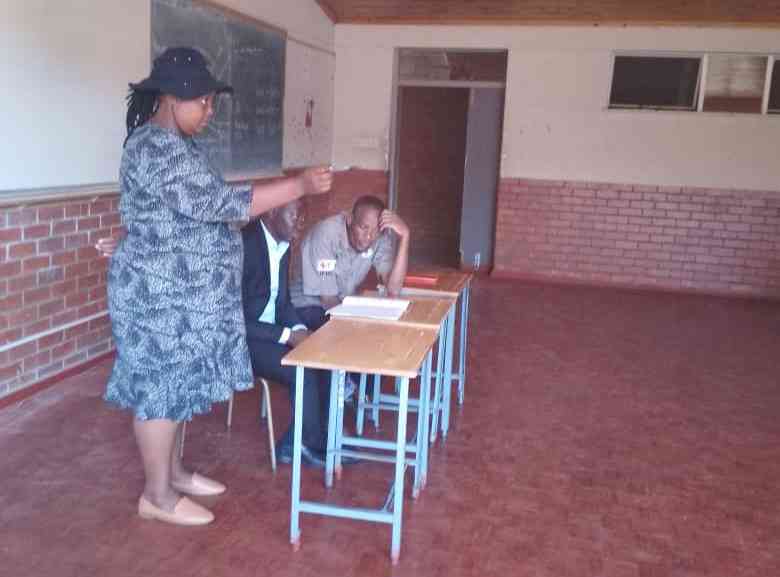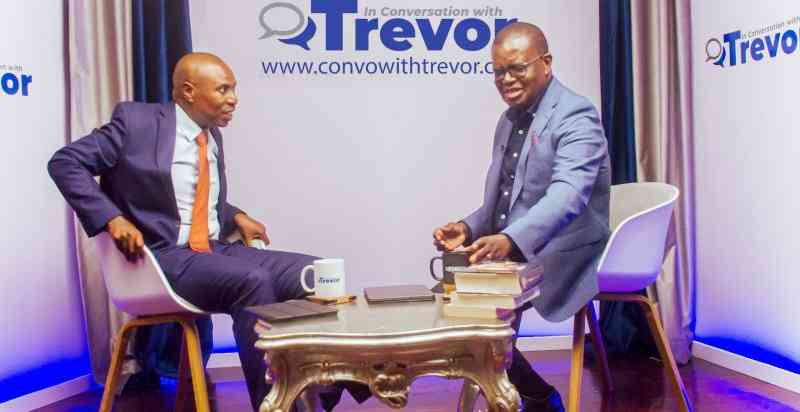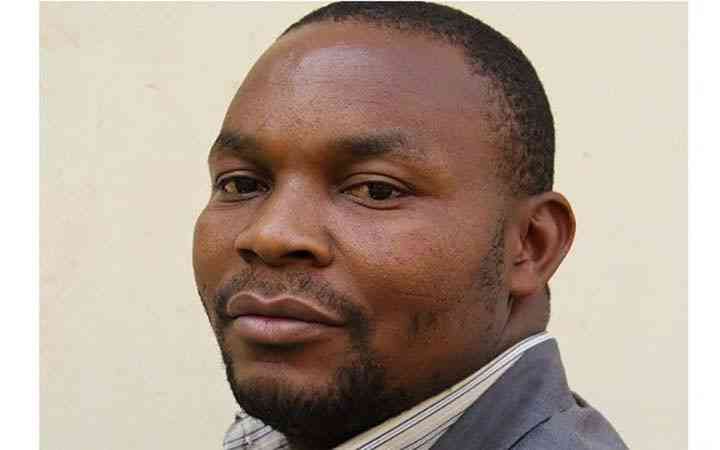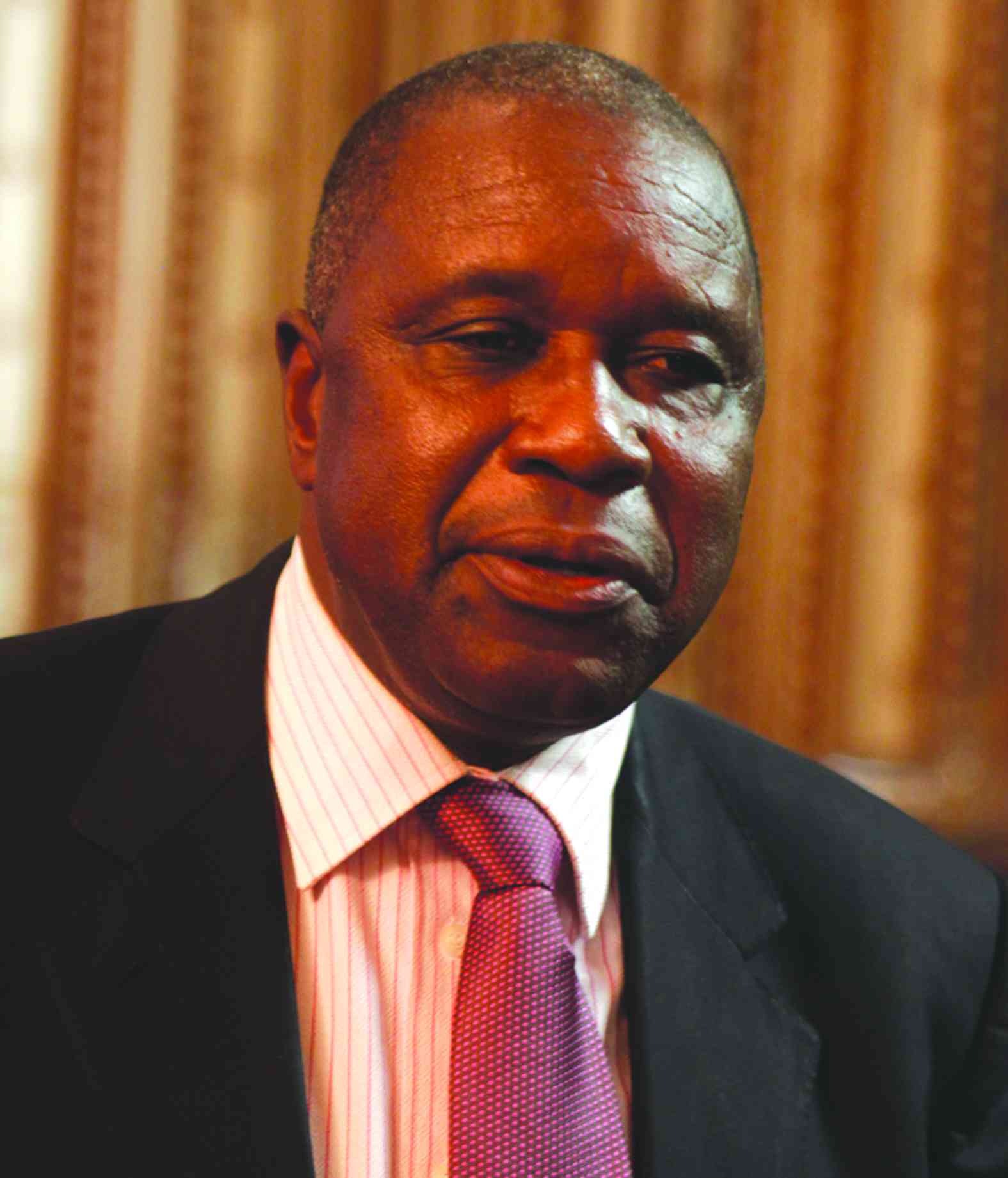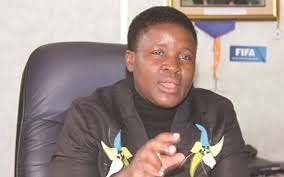
BY MOSES MUGUGUNYEKI Losing candidate in the just-ended House of Assembly by-election in Harare East constituency Mavis Gumbo stood toe-to-toe with other candidates, all men, during electoral campaigns, thanks to her strong financial background coupled by her political association.
Gumbo was one of the five women that contested on a Zanu PF ticket for the 28 National Assembly seats that were at stake during the plebiscite that was held last Saturday.
The Citizens Coalition for Change (CCC) had three female and 25 male contestants for the National Assembly slots while only two females represented the MDC Alliance.
According to the Election Resource Centre (ERC), women’s political participation in the by-election was very low – 11% representing Zanu PF while 9% and 8% for CCC and MDC Alliance respectively.
Female representation in other political parties was also low, proving to the fact that there are a myriad of stumbling blocks towards a more equal representation of women in political decision-making.
One of the major barriers that hinder women to enter into politics is lack of access to political funding, but in the case of Gumbo, she had the money to oil her campaign, a privilege that many other women and prospective women politicians do not have.
Gumbo could have lost the seat to Tendai Biti of the CCC for other reasons, but she competed in a strong and determined way due to her strong financial backing.
While a handful of women like Gumbo are privy to political finance, a number of women seeking to enter political life have been denied the opportunity due to their failure to access political funding.
- Chamisa under fire over US$120K donation
- Mavhunga puts DeMbare into Chibuku quarterfinals
- Pension funds bet on Cabora Bassa oilfields
- Councils defy govt fire tender directive
Keep Reading
According to the Women’s Participation in Politics Africa Barometer 2021, women constitute 34% of parliamentarians and 30% of councillors in African countries with the PR system.
The lowest representation of women (17% at both local and national level) is in FPTP countries with no quotas.
As of September 2021, globally, only 25% of seats in parliaments were held by women while data from 133 countries shows that women constitute 2,18 million (36%) of elected members in local deliberate bodies, says UN Women.
A research carried by International IDEA titled Funding of Political Parties and Election Campaigns: A Handbook on Political Finance revealed that political finance was one of the key stumbling blocks towards a more equal representation of women in political decision-making.
“When you want to enter into politics here in Zimbabwe, you should have a very strong purse,” said Cecilia Chipundo of Zengeza 3.
“The money that pays your campaign including buying campaign material, transport costs and mobilises people, in most instances comes from your pocket and with this kind of economy in Zimbabwe, it’s difficult for us women.
Chipundo said Zimbabwe’s ailing economy coupled by corruption and high candidate fees were barriers to women’s political participation in particular.
“Our economy is doing well and in such a scenario women bear the brunt,” she said.
“There are times when you are supposed to pay your way to the top. Yes, you have to bribe the top guys and for us women, it’s an uphill task because we suffer disproportionately when it comes to raising the money.”
Councillor for Chitungwiza ward 8 Maria Majoni said even if women get into politics or leadership they play second fiddle to men.
Majoni, who was voted into council in 2013 and 2018 under the MDC Alliance ticket, is one of the two female councillors in the male-dominated Chitungwiza Municipality which has 24 wards.
“We face a lot of challenges as women leaders especially in accessing funds to finance programmes in our respective wards,” said Majoni.
“At the moment the economy is not doing well and that has adversely affected our programmes.
“For instance as woman councillor when you sought funding for a particular project, people ignore, but if it’s a male councillor they quickly react.
“In my ward we have roads, which we have been trying to repair and for years no one is willing to assist, but you will find it’s a different story when male councillors are involved.”
Majoni said their plight as woman leaders has been worsened by the country’s struggling economy.
She said most women in the country were disproportionately more in the informal economy and they have less access to social protections.
She believes women make good councillors and urged more women to take part in politics.
Zimbabwe Women Against Corruption Trust executive director Sandra Matendere said there was need to come up with policies that promote the participation of women in politics.
“Access to political finances in Zimbabwe is a challenge which needs to be addressed because the funds are disbursed to the major political parties and the other ones get nothing,” Matendere said.
“The financing of few political parties weakens the ability of less resourced party candidates to self fund.
“This becomes a challenge for women’s participation in politics as most of them don’t have the capacity to self fund election campaigns as compared to men.
“The political financing act has to be revised and make sure that all parties with parliamentary representations get access to funding from the government for campaign purposes.”
She said they have noted that the uneven distribution of political finances perpetuates corruption and vote-buying as some aspiring candidates end up using those funds to buy food for the electorate in the process luring voters.
Self Help Development Foundation executive director Wadzanayi Vera said the participation of women in politics was limited by several factors and political financing is just but one of them.
“Despite all efforts to provide a legal framework for women’s political participation through the Constitution, training and capacity building programmes for women; among others the absence of a robust financing system for women politicians will continue to hinder their full participation,” Vera said.
“At a very practical level one will require to be mobile to meet voters and engage with them physically; online engagement also comes with costs of data, devices and electricity; campaign visibility materials such as t-shirts, hats etc come at a cost; supporting the daily needs of a campaign team requires funds; these all demand resourcing at the personal level of the politician.
“The link between women’s economic status and their political participation is direct.
“The current thinking is that the more economically empowered one is the greater their chances to run their campaign for political office.”
She said the level of women’s participation in politics has remained very as noted from scanning the election landscape since independence of the country.
“A robust political financial system is also very necessary to support the legal, moral, educational efforts made towards women’s political participation,” Vera said.
“This financing can come in a variety of forms with the financing of political parties being one avenue, but with the demand for gender-budgeting and reporting; affirmative action programmes from the fiscus that support women’s political participation; crowd-funding strategies by women to participate in politics.”
Since women globally are more socio-economically disadvantaged than men, they also suffer disproportionately when it comes to raising the money often required to enter politics.
Zimbabwe Gender Commission CEO Virginia Muwanigwa said the government was proactively working towards equal representation of men and women politics as well as decision-making positions at all levels.


